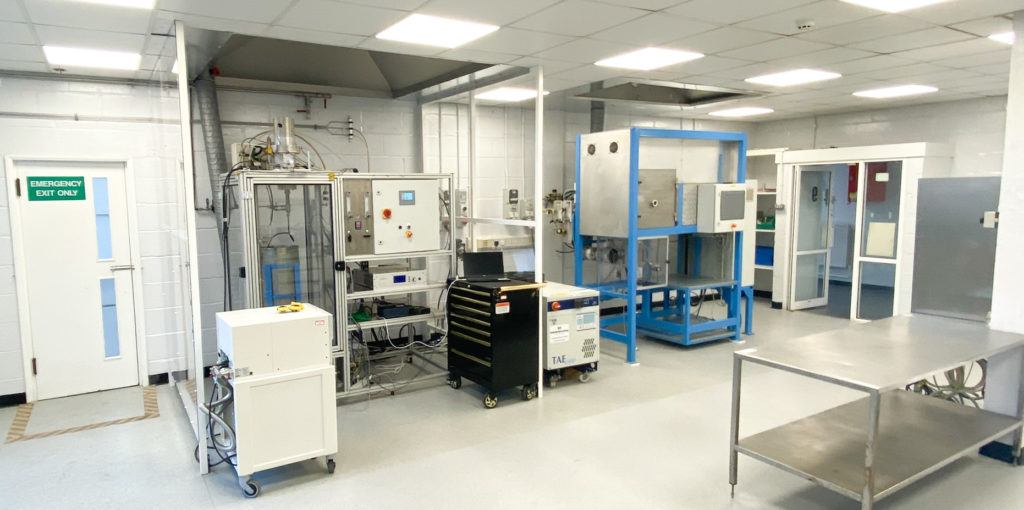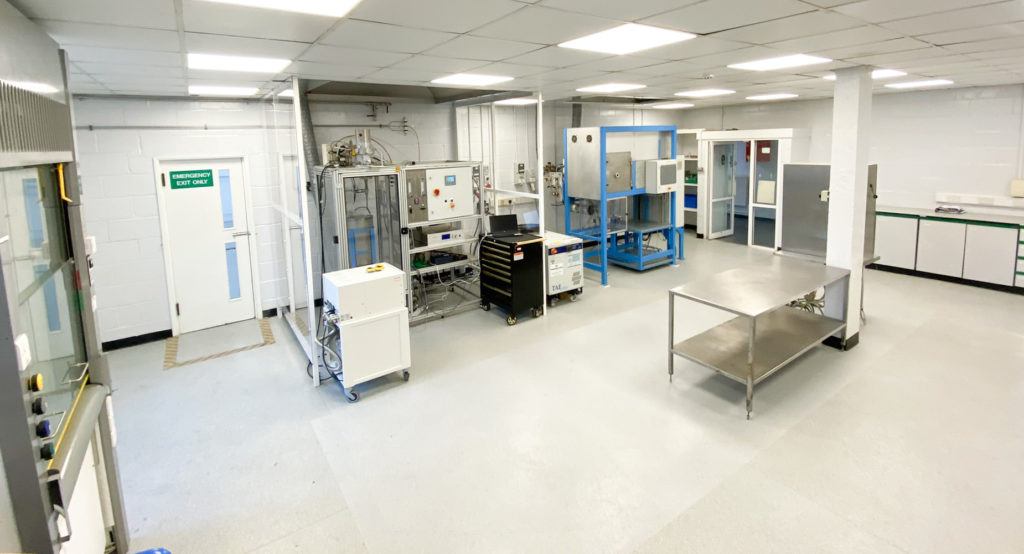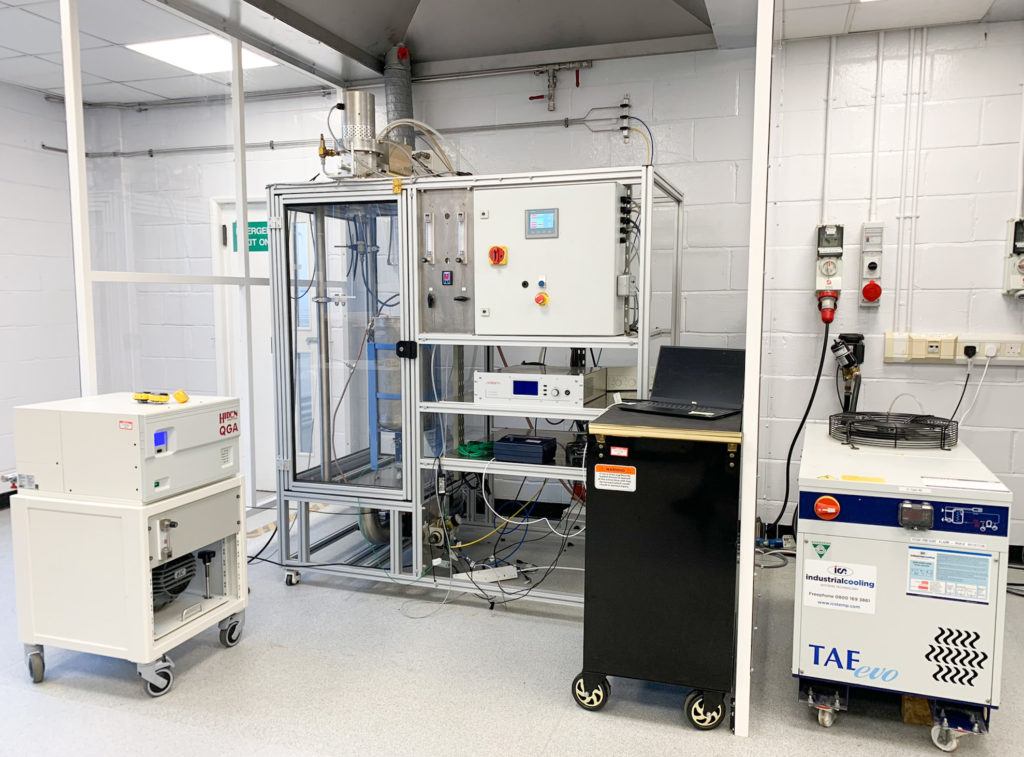Our Dedicated Low Carbon Technology Lab
As part of our ongoing research into technologies that can speed up the transition to low carbon manufacturing processes, we have commissioned our first dedicated industrial decarbonisation research space. To achieve net zero targets, industry, transport and domestic energy use will have to shift significantly utilising electricity and hydrogen far more widely than in the current energy mix.
With the enhancements we have made, this now becomes our primary research facility for high efficiency electrical processes and is equipped to be a flexible research space for the integration of microwave, plasma and high temperature processing with industrially significant processes. The development of this space is one of the improvements we are committing to as part of the investment to support our clients in extending the applications of electrically powered processing.
Here at C-Tech we have identified that there is significant value in linking our electrically powered heating processes to continuous manufacturing and we will be developing case studies based on microwave catalysis, plasma and reduction processes.
This work is in conjunction with the research program supported by UKRI where our technical director Dr Rob Bell has been awarded one of the highly prized future leaders fellowships (2021). One of the key targets of the FLF scheme is increasing the capabilities we have here at C-Tech Innovation to meet the needs of our research and innovation ambitions. This capability increase extends to our facilities and ensuring these are ideal to meet the ambition of the technology development. The new laboratory environment to allow for hydrogen and other difficult to handle reagents to be safely managed and integrated into systems using the high efficiency electrical heating technologies under development.
We can now provide dedicated laboratory facilities for work on the technologies under the FLF programme and the space for our clients to integrate technologies such as flow chemistry, heating innovation and process control activity together in a safe flexible environment that offers unique capabilities to support process development.
We will be presenting more of our work here over the coming months and look forward to welcoming our clients and partners to utilise the capability.

Our first dedicated industrial decarbonisation research space.
TECHNOLOGY FOCUS
Microwave Assisted Chemistry
The use of microwaves in catalytic reactions frequently gives faster reaction rates, greater selectivity, and higher yields. These advantages are often associated with the changes in the thermal gradient that can be achieved with microwave heating by the selective heating of catalytic structures. Internal work performed here at C-Tech Innovation on heterogeneous reactions suggests that reactants at the surface are not in thermal equilibrium between the surface and that the increases in rates observed may be influenced by the electric field at the surface.
Dr. Robert Bell with the assistance of our expert team will be extending and applying this work to heterogeneous reactions, such as commercially relevant hydrogenation reactions in continuous systems. The systems will form the growing set of continuous manufacturing systems already developed by us; the additional knowledge generated can be easily integrated into the systems.
Plasma Gas Phase Chemistry
We have developed high power microwave plasma systems which operate at or above atmospheric pressure. The high field strength of the microwave frequency electric field used in our plasma system allows the combination of thermal and non-equilibrium plasma effects, this has been demonstrated to be effective in treating material surface and continuous gas phase reactions.
Dr Robert Bell will work to extend the research to the reaction of CO2 and nitrogen compounds. The activation of O, N and CO2 has been found to be particularly effective in the systems and the extension to cover other nitrogen compounds, and reactions of CO2 will generate novel applications beyond the chemistries that are under development.
Electric Field Assisted Reduction
We have further successfully demonstrated reduction of iron ore and iron containing ores such as ilmenite using H2, CO and mixtures. This work demonstrated that the required temperatures can be reduced by up to 300°C thus reducing energy demands by 40%.
Work will be undertaken by Dr Robert Bell and his team to understand the mechanism and reaction parameters to apply the learning to high energy use processes in a range of applications.

Our Dedicated Low Carbon Technology Lab for the development of sustainable manufacturing processes
Read more about the FLF Fellowship here.

